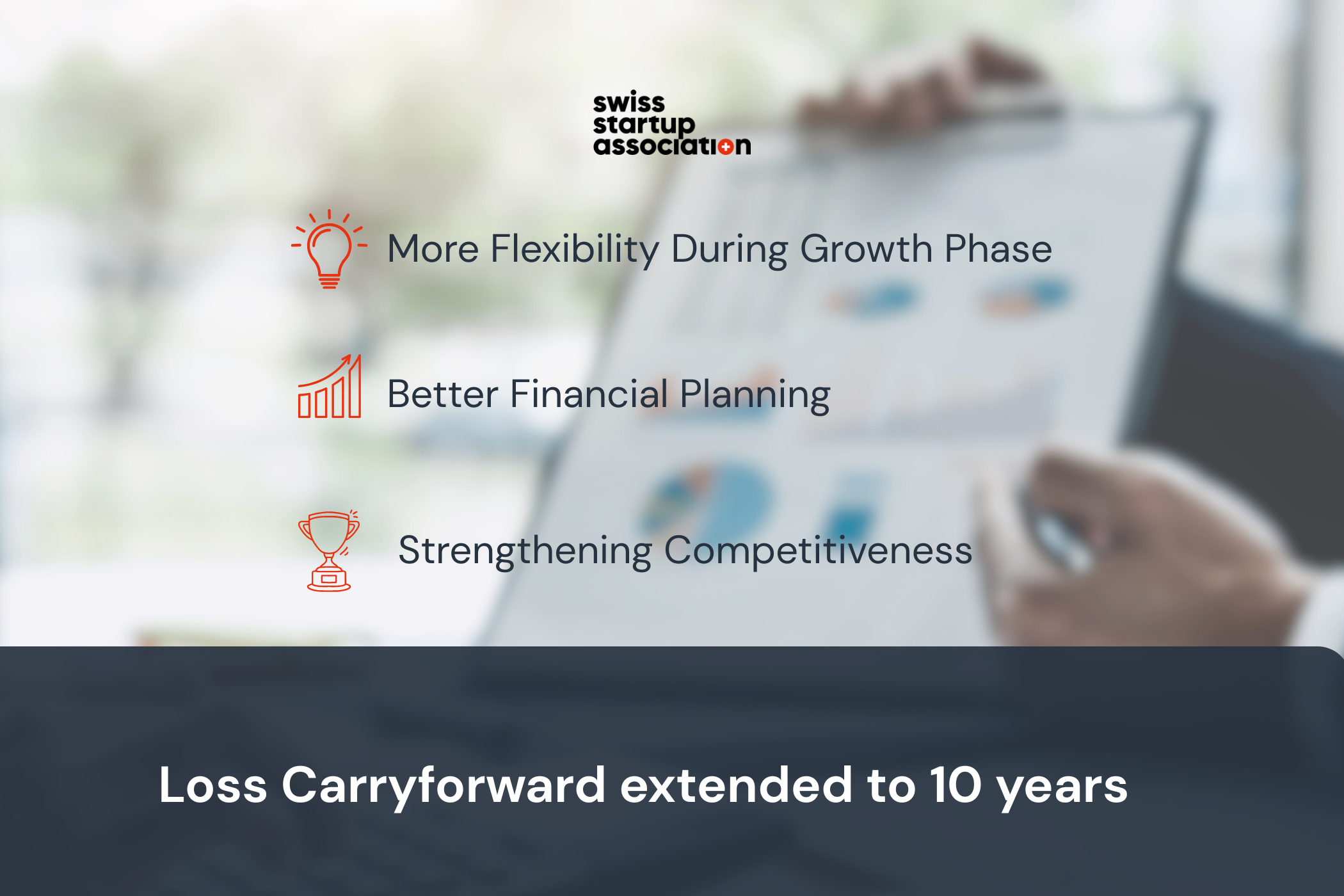
Swiss National Council Approved Extension of Loss Carryforward
The Swiss National Council has voted in favor of extending the period for tax loss carryforwards from seven to ten years — passing the measure with a 127 to 64 majority. The final decision now lies with the Council of States. This tax reform would have important implications for the startup ecosystem in Switzerland. But what would this mean in practice, and how would Swiss startups actually benefit from it?
What’s a Tax Loss Carryforward?
A tax loss carryforward allows companies and self-employed individuals in Switzerland to offset losses from one tax year against future profits, reducing their tax burden over time. This mechanism applies at both the federal and cantonal levels for income tax, corporate profit tax, and—under certain conditions—property gains tax.
For income tax, only losses from self-employment can be carried forward and may not be offset against other income in the same year. In the case of profit tax, the loss must originate from a legal entity. Unlike in some other countries, Switzerland does not permit loss carrybacks, meaning losses cannot be applied to previous years’ profits.
Switzerland has limited the tax loss carryforward period to seven years. If unused within that time frame, the losses expire. However, with the recent approval by the Swiss National Council, this period may soon be extended to ten years — a change that could offer significant tax planning advantages for startups and growing businesses.
Impact on Startups
The extension of the tax loss carryforward period from seven to ten years would offer greater flexibility for startups in Switzerland during their critical growth phase. Early-stage companies often face initial years of operating losses due to heavy investments in product development, talent acquisition, and market entry—well before turning a profit. This reform ensures those early losses can still be leveraged once profitability is reached, reducing long-term tax liabilities.
The longer carryforward period would also enhance financial planning for startups. With more time to offset losses, founders can make more accurate projections about future tax burdens—factoring them into key decisions like fundraising, international expansion, and budgeting.
Importantly, this policy would position Switzerland more competitively as a startup and innovation hub. In today’s global race to attract high-growth companies, the ability to carry forward losses over a longer horizon signals strong support for entrepreneurship and innovation. It reflects Switzerland’s commitment to economic resilience, especially in times of market volatility.
Overall, this reform not only eases short-term tax pressure but also promotes sustainable business models, further reinforcing Switzerland’s status as a top destination for startups and scale-ups.



